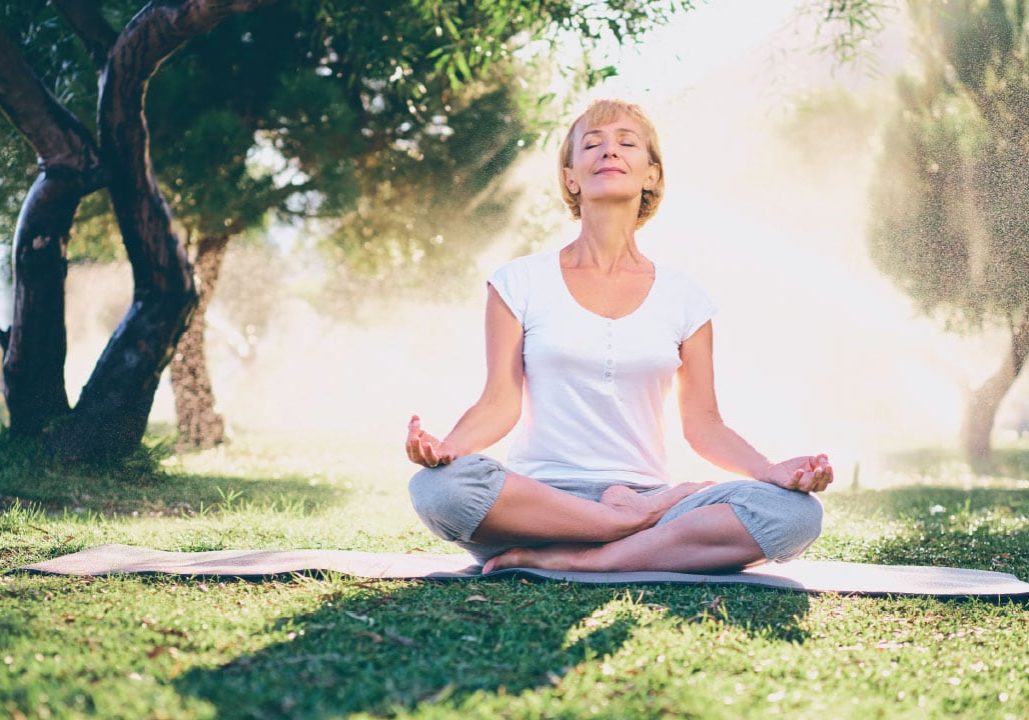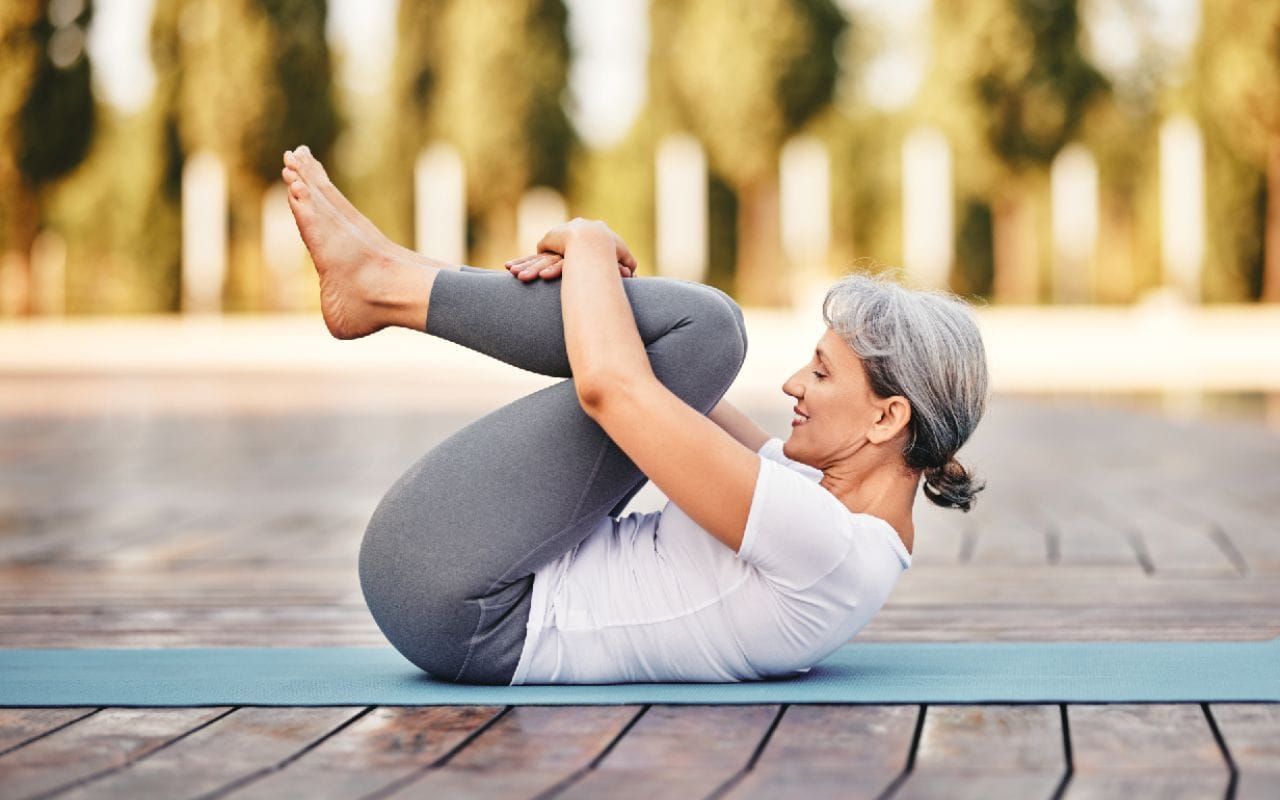
Ageing gratefully
Learning how to age gracefully...and gratefully. How yoga can help with changes in a woman's body, mind, and heart in the wisdom years. By Desi Bartlett
Our relationship with ageing is often adversarial – ageing is seen as something that we must 'fight' or 'combat'.
In 2021, the anti-ageing industry generated $60 billion worldwide, and that's predicted to double by 2030. Many of the creams, serums, and procedures that are marketed, focus on women.
The wording on the advertising for these products can send a subtle message that ageing is connected to fear and shame. We are often told that we need to pull, tuck, and smooth our skin and bodies.
But what if we could reframe this point of view, and remember that we are indeed beautiful because we have reached a certain age, filled with wisdom and a lifetime of experiences? What if gratitude and celebration could become the new buzz words associated with ageing?
This time of life can be associated with coming into our full power, our full ability to use our voices and become our own best advocate.
Advocating for health – and not only for anti-wrinkle creams – is a proactive step in ageing gratefully. Treating the body, mind, and heart with respect and care can not only improve our health, it can also create a paradigm shift for women around the world.
Looking at women's health through the lens of feeling good, and not just looking a certain way, requires a consideration of the changes that happen in our bodies after the age of 40. It is usually around this age that we enter perimenopause. Perimenopause can last up to eight years, and is associated with declining levels of oestrogen, as well as several other changes in a woman's endocrine system.
To help mitigate some of the effects of the declining levels in oestrogen, some women are prescribed hormonal replacement therapy (HRT).
It is important to note that women's health is not 'one size fits all', and not all women can tolerate the side effects of HRT, which for some, can be worse than the symptoms associated with the menopausal transition.
While symptoms can vary from woman to woman, three of the most common complaints during this stage of life include: hot flushes, sleep disturbances, and weight gain. This particular trio of symptoms is often a cascade effect in that a women might have a hot flush in her sleep, which awakens her from rest. Once a woman is awake, there is then a disruption in her sleep pattern, and it is often challenging to go back to sleep. With this disturbance in sleep comes a disruption in her normal eating schedule, and often a craving for sugar to help her feel a bit of energy after disrupted sleep, which can make her feel fatigued.

What can help? Research has shown that yoga can help mitigate many of the symptoms associated with perimenopause. A 2021 study found that a regular yoga practice can help women improve their quality of life through the menopausal transition.
Additional studies have show that yoga can also help to improve one's quality of sleep, as well as helping to regulate weight and help prevent obesity.
Yoga is indeed an amazing tool for women during the menopausal transition in terms of physical health, but what about mental and emotional health?
Scientific research has also shown that yoga can help with these issues as well. Many women share that there can be an intensification of moods during this phase of life (mood swings), and women who have never experienced anxiety or depression might encounter this for the first time during this transition.
Yoga can help to ease intense emotions and anxiety, and there are many tools from the practice that one can employ.
Here are some of the tools that can help with physical, mental, and emotional changes:
Physical tools
- Enjoy a regular yoga practice at least two times per weeks for 60 minutes.
- Practice ujayii pranayama (diaphragmatic breathing) when there are feelings of anxiety or overwhelm.
- Participate in weight-bearing activity, including yoga, and resistance training to improve bone density.
- Ask your physician for a full blood panel analysis to understand hormonal levels, as well as micronutrient levels.
Mental health
- Meditate each morning for at least five minutes (think of it like brushing your teeth...or mental hygiene).
- Notice if you experience repetitive thoughts that do not serve, and, if there are, use a 'pattern interrupt', such as dancing.
- Try a 30-day 'fast' from complaining.
Emotional wellness
- Make a gratitude list.
- Maintain a healthy eating schedule with nutritious foods.
- Combine a colourful carbohydrate with satiating protein (e.g. butternut squash soup with pumpkin seeds).
- Set clear boundaries with your time.
The ancient yogis taught us that the health of the spine is directly related to the age that one feels. Modern science teaches that there is a direct correlation between gratitude and happiness. It is important to remember that mental, emotional and physical health are not one size fits all, and finding the perfect combination requires some inquiry. Simple questions such as: 'How does my body feel today?' and 'What am I grateful for?' can give clear feedback on what to let go of, and what to invite in more of.
For more tips, check out the new book, 'Total Body Beautiful: Secrets to Looking and Feeling Your Best After Age 35' by Desi Bartlett, Andrea Orbeck, and Nicole Stuart. Out now!


